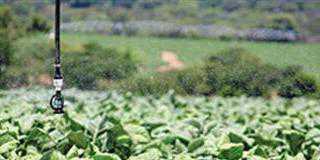Farm evictions continue to divide opinion – agricultural unions argue evictions are either legal responses to changing business conditions or isolated unlawful acts, and land activists insist complaints of abuses keep flooding in. Stephan Hofstätter spoke to Peter Moatshe, chairperson of the parliament’s select committee on land and environmental affairs, after he chaired a heated parliamentary debate on this issue.
You and your father were farmworkers and therefore farm evictions lie close to your heart. Have matters improved since you were a youngster on the farm?
If the things we heard today are still happening then no, things have not improved and it shows some people are still living in the past. It is totally inhuman to treat people that way. We should do unto others as we do unto ourselves. We now have equal rights for all, and we abhor such behaviour. We have to ask ourselves: are these laws [the Extension of Security of Tenure Act, regulating evictions] alleviating the problems and challenges of our people? Are these laws turning things around for the better? Politicians must check on these issues. We know there are farmers who are doing good work, and we want to encourage them to continue. We should hold public hearings on farms, where farmers and farmworkers are invited, so we can change the mindset of those who live in the past. We need to normalise society, instead of creating enmity. People must realise we are talking about building a new country, without enmity, and that reconciliation is very important. We need to embrace one another to build this country.
The Human Rights Commission has stressed far too little is done to mediate between farmers and workers facing eviction, and that going the legal route simply creates more tensions. What role can and are politicians playing to resolve these issues?
When parliament is in recess, we are expected to do constituency work and to work on a range of challenges. Our constituency offices write up complaints so that we know what we must attend to. We go to farms where people face evictions and we interact with farmers. There have been cases where farmers agreed to take people back. In my area [Brits in North West] we convene meetings with farmers to inform them of the law. And we have meetings with farmworkers and inform them of their rights.
What role does your committee intend to play in ensuring government agencies and departments are more proactive in providing farmers and workers with the right information on their rights and obligations, and preventing evictions and promoting mediation?
Many farmworkers facing eviction look for help and information, but can’t find it. This shouldn’t happen. We do have an supervisory role. The information of evictions we have received today empowers us with the knowledge of where we are and where we must intervene, and we will take this seriously. The matter will be raised very sharply with the Department of Agriculture and the Department of Land Affairs. We need to know what they are doing in terms of educating farmworkers and farmers.
Will your committee report back on the findings?
Yes, we will gather information and report back to parliament.
What does your committee expect of farmers?
I’d love to see them cooperate with government to normalise our society. They must know we are concerned about their safety and their right to live in a safe environment. But this can only happen if we deal with enmity. I can’t make you my enemy and then expect to live in a safe environment. We should be friends and citizens of this country who contribute positively to its wellbeing. But there must be a change of mindset. |fw













